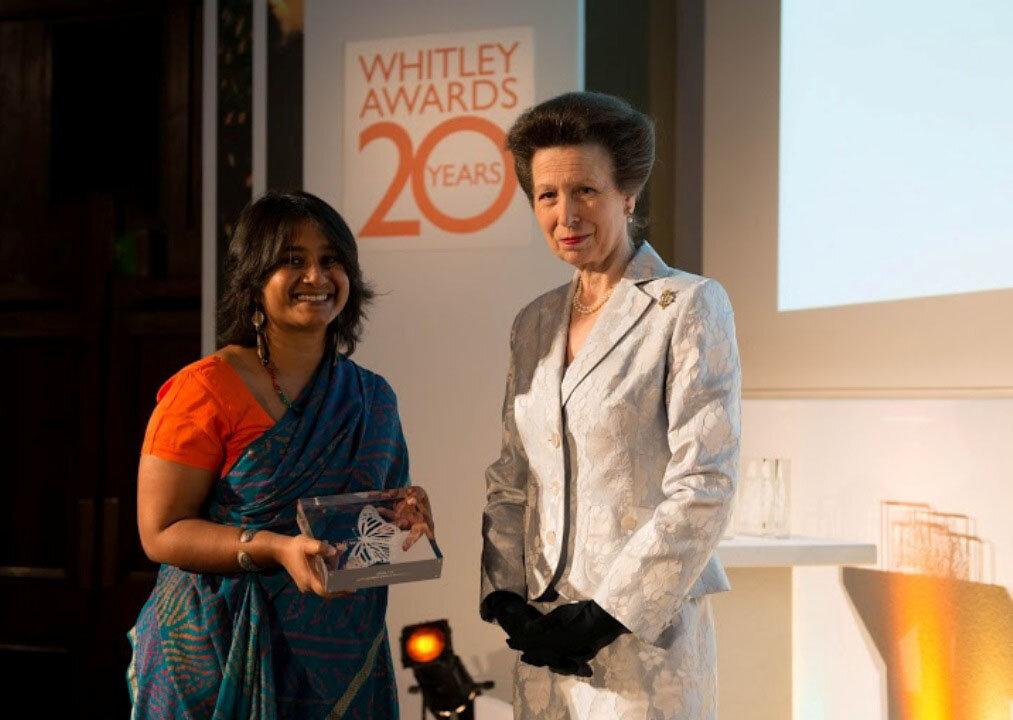An Indian wildlife biologist won the prestigious Whitley award, also called Green Oscar, for her efforts to save endangered hornbills in the forests of Eastern Himalayas.
Dr. Aparajita Datta was honored by the Princess Anne, daughter of Queen Elizabeth, at the Royal Geographical Society in London, at a ceremony celebrating the 20th anniversary of the Whitley awards.
Datta heads a program to conserve hornbills in the dense tropical forests of Arunachal Pradesh state at the Nature Conservation Foundation.
The forests are home to five species of hornbills, where these brightly colored, curved-beak birds are crucial agents of seed dispersal. However, the birds are hunted for their beaks and feathers by a small tribal group, called Lisu, thereby threatening the existence of hornbills in these forests.
As an effort to protect these birds, Datta established a community-based conservation program with the tribal hunters—focusing on how to reduce poaching activities by first improving their quality of life.
“It is impossible to convince tribal people to be part of wildlife conservation without first understanding and having empathy for their own fundamental needs,” Datta told the National Geographic.
Her team started schools, built river embankments to check soil erosion, supplied solar panel lamps to power their homes, and provided fuel-efficient stoves and water-heating devices in an effort to reduce deforestation. Data’s team is also focusing on marketing Lisu handicrafts and developing nature tourism run by the tribal people.
“All these activities are geared toward giving the community direct, meaningful benefits with the understanding that it will ultimately save wildlife.”
These efforts broadened the need of conservation among the tribal people and helped in protection of the vulnerable birds, by converting hunters into their saviors.
However, according to Datta, sustaining the reduced hunting trend for a long run would require meeting the demands to benefit the entire tribal society including its each individual household.
“I love this area so much—the amazing diversity of its wildlife and its cultures,“ she said. ”I work closely with both, feel great empathy for both, and hope to make a difference.”
The Whitley awards are annual international prizes that honor exceptional individuals for their efforts to conserve nature in developing countries.
Aparajit Datta and eight other conservationists from different countries won the award and shared 2,95,000 pounds as the prize money.




